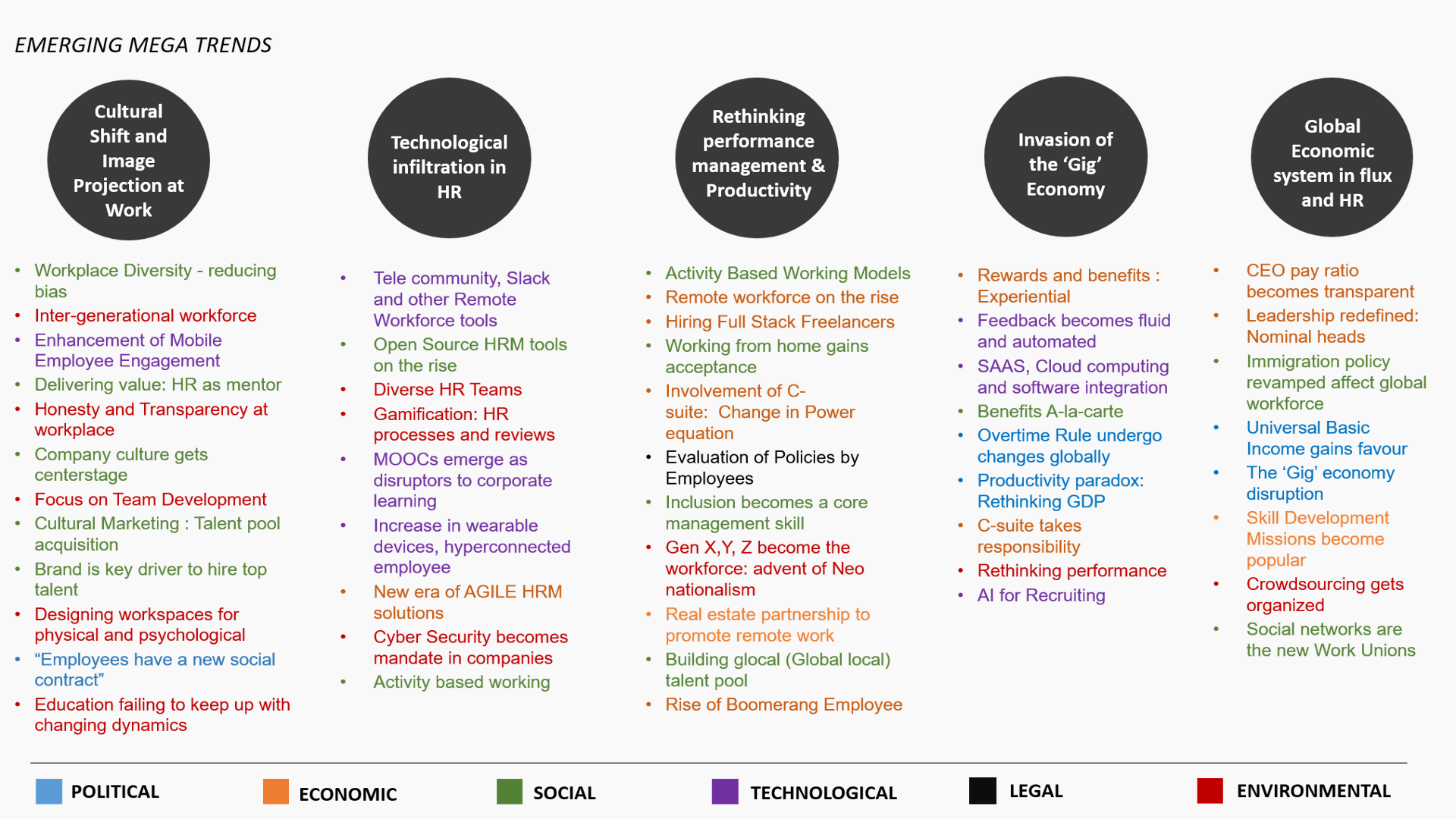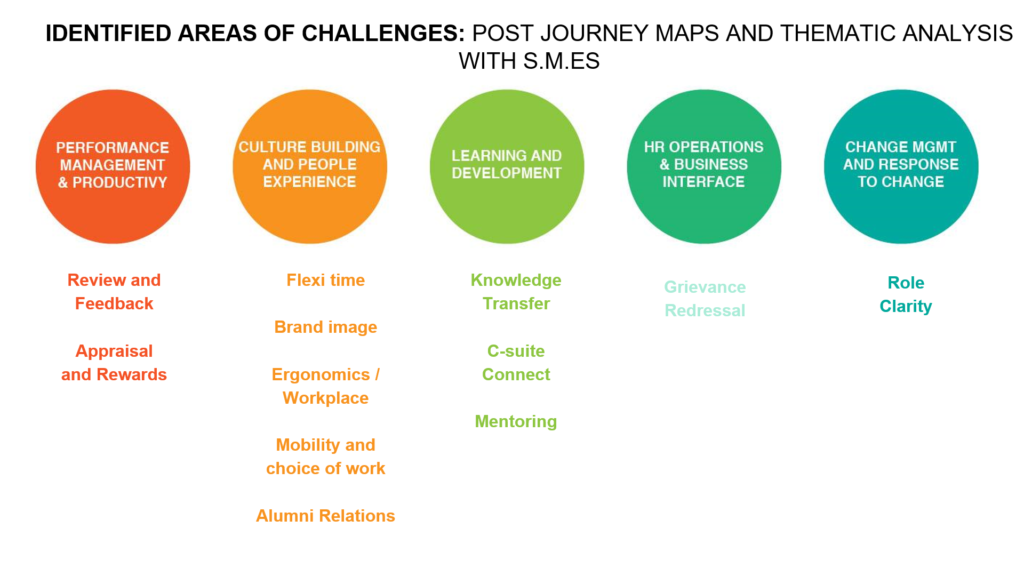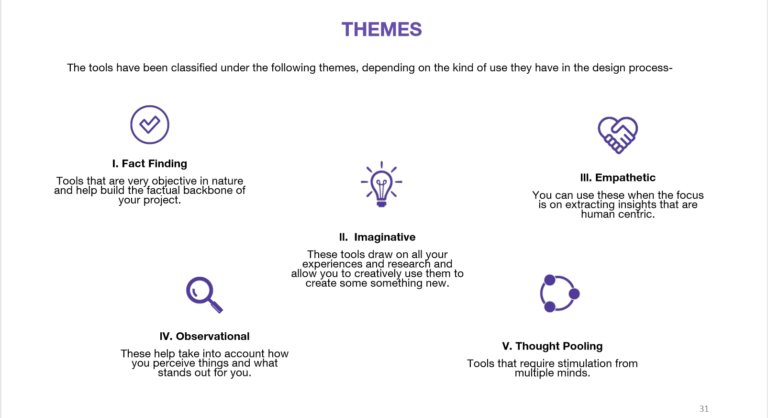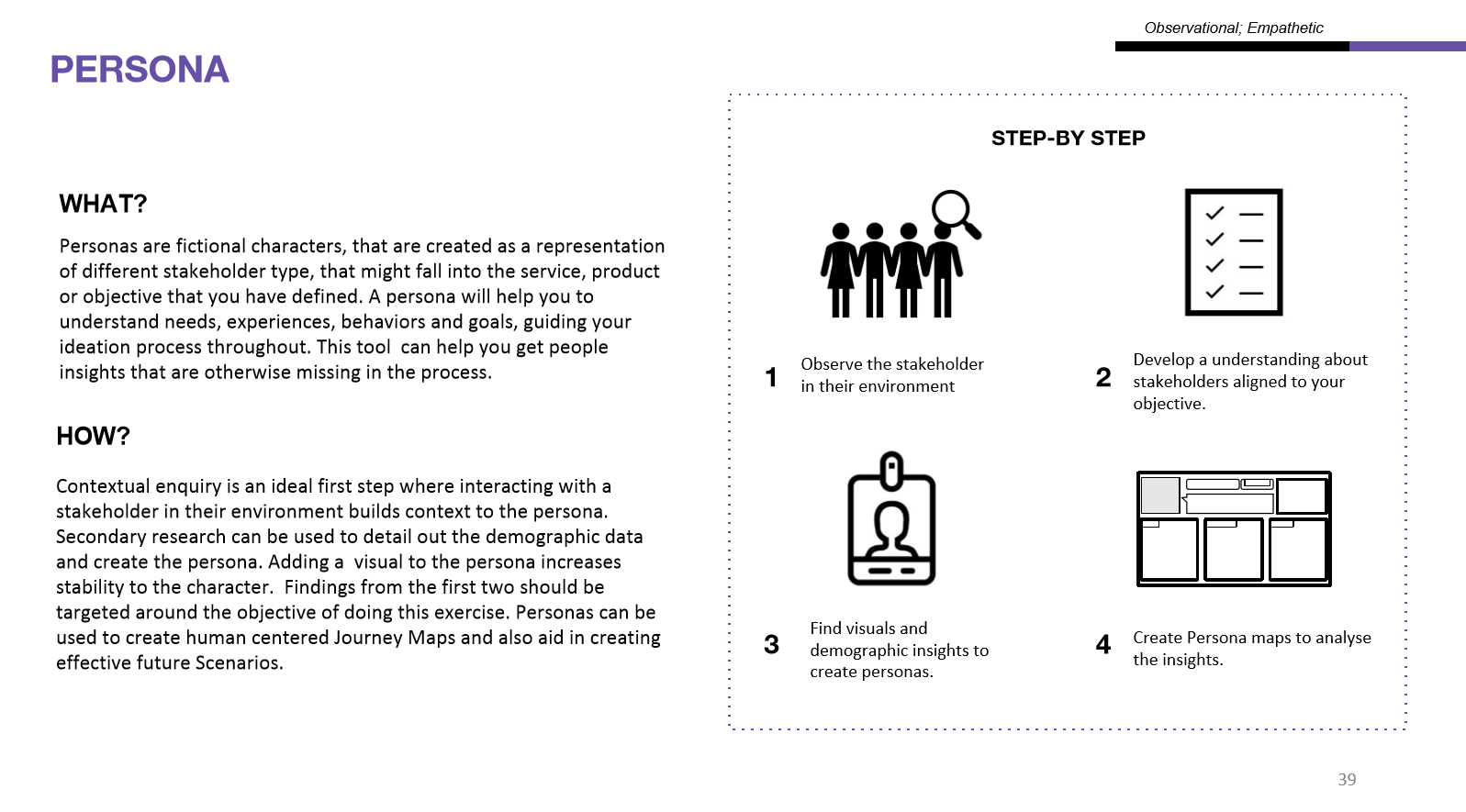The report and playbook yielded by a six month long Service Design research initiative on the future of the workplace, workforce, and of work itself, and how HRM needs to mould itself accordingly. Invasion of the Gig Economy changes dynamics considerably. Design Futures and Scenario Planning were employed to portend a future. This study led to the creation of a 'Live Lab' prototype within the firm.
Excerpts from the report:
"The business environment will be a shared gig economy idea where innovating via collaboration will gain prominence , disrupting multiple traditional operational functions– for the HR and otherwise. The dynamism of work will demand more strategic roles, that will rely heavily on assistive AI/ML Modalities. As the workforce will demand the work to become purposeful, productivity and performance will undergo transformation. Personalised and interactive performance management, training needs analysis and incentives etc. will rely on Data analytics as work will become virtually immersive. Culture of change will make employee retention highly volatile, as employees would seek work which is impactful. HR would thus have to find, collect and connect the right kind of people, at work. Work will no longer be only a means to earn a living, but will also be a space that transcends into people’s personal life.
With the change in the nature of work, expectations from the workforce will change. This will have a direct impact on how they are supposed to be taught and trained. Real world projects and hands on work will have to be incorporated in the educational setting to cater to the rise in entrepreneurial aspirations of the coming generation. There will be a rise in freelancers who switch work based on their interests in projects and entrepreneurs competing through small and mid sized innovative products and services.
More and more people will realise that continual self initiated learning is the new norm and they can no longer rely just on the book knowledge they picked up in educational institutions. Platforms such as coursera and edx will gain popularity as more and more people put in effort to pick up new and diverse skills. The need for a ‘think tank’, problem solving mindset will increase drastically as organisations will look for candidates that can wear various hats and pick up new skills depending on what’s required.
The political and cultural boundaries will fade away as the workforce will become ‘glocal’ and diversity will be an important part of the work culture that applicants will look forward to.
A change in the workforces’ expectations from work and organisations will occur parallely as the new generation will strive for a sense of purpose in whatever they do and gauge work in terms of the impact that they are making individually/collectively.
The Workplace of the Future will be an interesting Paradox, one that stems primarily from the shifting of scales / balance of power in favour of the empowered individual versus the organisation. Global networks of co-working spaces will become more commonplace – so as to enable upwardly mobile full-stack freelancers / gig economy workers to work out of any corner of the world, as will virtual workplaces equipped with Augmented Reality / Virtual Reality devices and technology so as to facilitate real time seamless interactions across geographies. Organisations on their part will also try match up and offer all such benefits so as to attract and retain people – including Work from Home / On the Go options, Non binding Flexible Work Hours, et al. They will also undertake massive rebranding measures to project the image of a Great Place to Work, offering Dynamic project and purpose-oriented processes to facilitate People Engagement, by means of a Collaborative Culture, Value Add Trainings, Performance Assessment and Rewards schemes tailored to the individual, and crafting the best possible Workplace and Employee experience for each...".




